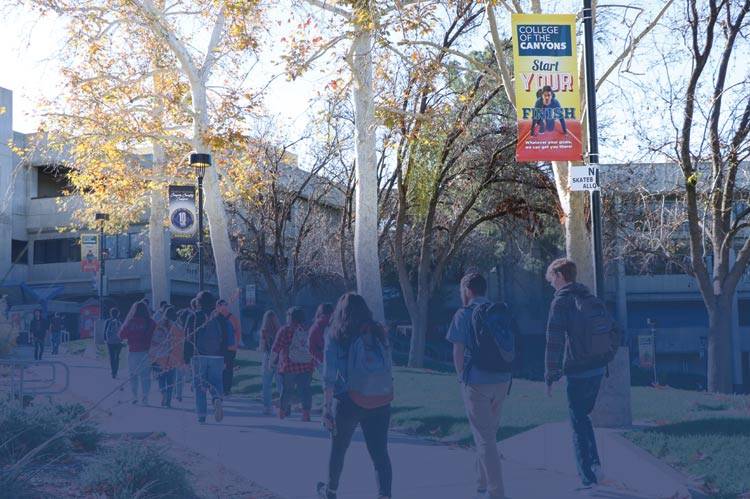Welcome to DECT
Please see the following message from the new host of the DECT grant, the TechConnect/DECT team at Palomar College
This is the fourth update from the TechConnect/DECT team at Palomar College.
The TechConnect DECT website is now live as we continue to ramp up services. Please visit the website at https://cccdectgrant.org/. While the website has been fully vetted for functionality, please do not hesitate to submit a ticket to support@cccdectgrant.org if you encounter any difficulties utilizing either the website or the forms.
Continuing through the end of August 2023, we will conduct the RFP (Request for Proposal) process to solicit bids for future pre-approved vendors.
While we are working on establishing the DECT services and pre-approved vendors within
our TechConnect team we would like the districts to do the following:
- Submit to our Helpdesk support support@cccdectgrant.org the District designated signatory. This person is usually a Dean or Vice President, most commonly the Vice President of Instruction or Vice President of Finance for the school.
- Submit a DECT grant agreement that is to be signed by every district as a pre-condition for submitting any application. This item is available on the TechConnect DECT website at https://cccdectgrant.org/forms.
- Submit applications that are limited to the reimbursement option only until we finalize the vendors’ RFP. The application is available on the TechConnect DECT website at https://cccdectgrant.org/forms.
- Use TechConnect/DECT support as the communication channel support@cccdectgrant.org.
Since 2008, the DECT grant, administered by the College of the Canyons, has been providing accessibility services to the California Community Colleges System. Because Distance Education is the fastest-growing modality in California, and especially since 2020, online delivery of courses has seen a huge increase. To provide accessibility for digital materials to online students, some components of online learning require captioning, transcription, or other accessibility features to remain in compliance with state and federal laws. Beginning July 1, 2023, this important responsibility was transferred to CCC TechConnect/Palomar CCD in San Marcos, California.
CCC TechConnect/Palomar CCD is working to ensure an ongoing commitment to equity and accessibility in education. Together, we can create an inclusive learning environment that empowers every student to reach their full potential.
If you have any questions or require further assistance, please don't hesitate to reach out to our friendly support team by emailing support@cccdectgrant.org.
-The TechConnect/DECT Team
Distance Education comprises the fastest growing delivery mode in California Community
College (CCCs). In order to provide access to all students and to comply with federal
and state law, some components of distance education classes may need to provide captioning
or transcriptions.
The Distance Education Captioning and Transcription grant (DECT) provides CCCs with
funding for live and synchronous captioning and transcription as a means of enhancing
the access of all students to distance education courses. Further, the DECT promotes
and supports awareness of available funding as a means to support faculty efforts
to develop high-quality, media-rich distance learning courses.
IMPORTANT: Please note the following language that is included in the DECT application
for funding:
Regulatory Compliance - By signing this Application and Agreement and accepting Grant funding, Applicant
District agrees that it will comply with all California Education Codes, Public Contract
Codes, other applicable laws and regulations and Applicant District's policies and
procedures and, further, certifies that Project as submitted is allowable within the
terms of the Grant as described on the website.
What Qualifies for DECT Funding?
- Distance Education (Online, Hybrid, Synchronous, Asynchronous)
- Credit and Non-Credit classes
- On-campus Classes utilizing distance methods of content delivery as they evolve (e.g., class capture, web conferencing, vodcasting, podcasting, content posted within a Learning Management System)
Beginning October 1, 2022, the requirement that a student with an Academic Accommodation Plan (AAP) enrolled in the course is no longer required. Also, Audio Description in distance education classes or for media deployed in distance education classes now qualify under the grant.***
The Web Content Accessibility Guidelines 2.0 (WCAG 2.0), Level AA include audio descriptions: “1.2.5 Audio Description (Prerecorded): Audio description is provided for all prerecorded video content in synchronized media. (Level AA)” If a college wishes to strive for WCAG 2.0 AA compliance, it might choose to provide audio descriptions in instruction.
PLEASE NOTE:
If an award is not used in the term for which you applied, your award will automatically be closed at the end of that term and the monies will be returned to the pool of funds that may be awarded to other colleges. If you have unused funds by the end of a term and still have captioning/transcription needs, please submit a new application for the following term. For example, you were awarded $1,000 for a project to be completed during the Spring semester and you did not use these funds before the end of the Spring semester. Your award will automatically expire and the $1,000 will return to the pool of monies that may be awarded to other colleges. If it turns out that the project you planned for Spring will be delayed until the Fall semester, please submit a new application for Fall.

